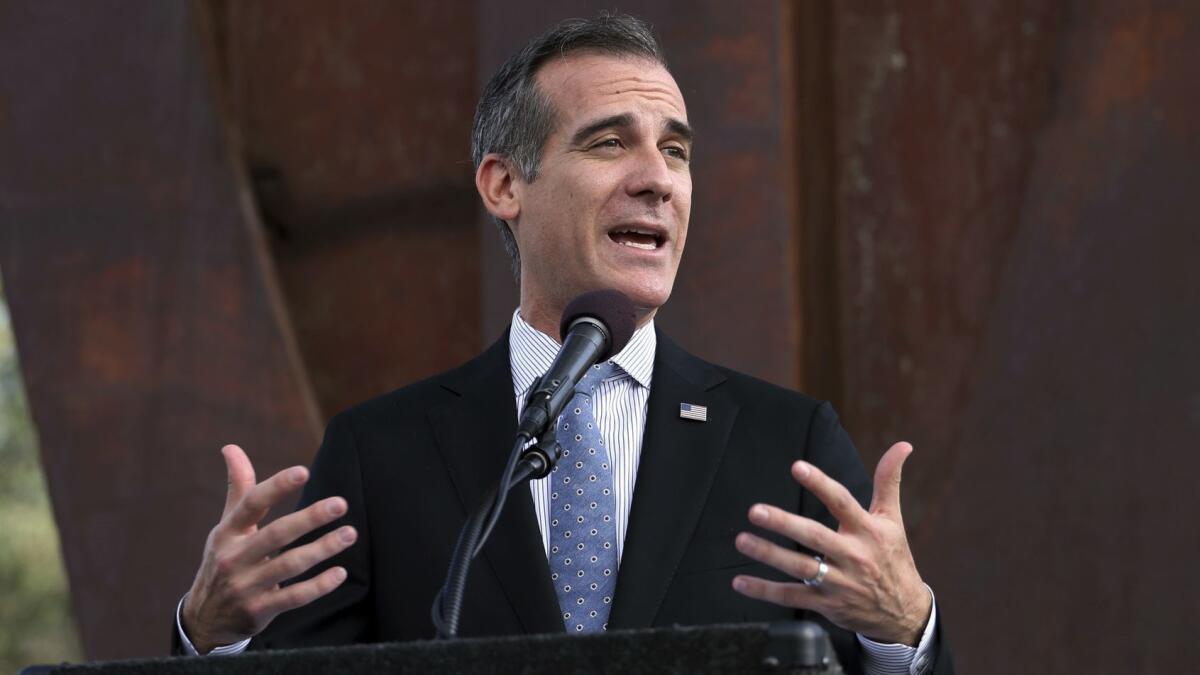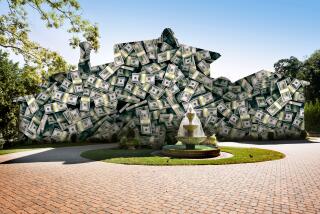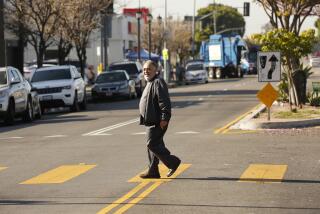Garcetti urges voters to reject Proposition 6, which would repeal California’s new gas tax

- Share via
Los Angeles Mayor Eric Garcetti joined business and labor leaders Wednesday to urge voters to reject Proposition 6, saying a repeal of the state’s new gas tax could force years-long delays for dozens of transportation projects across Southern California.
The hike in gas taxes and vehicle licensing fees, approved last year by the Legislature and Gov. Jerry Brown, would raise an estimated $5.4 billion over a decade to repave streets, untangle freeway interchanges and build new transit lines in Los Angeles County.
Reversing higher fees on gas and vehicle licensing could put funding at risk for hundreds of miles of repaving work on streets and freeways, as well as several major transit projects, including a planned train station serving Los Angeles International Airport, Garcetti said.
Backers of the gas tax repeal say lower taxes and vehicle licensing fees would save a family of four about $779 a year. But paying to fix streets is far cheaper than shouldering the costs of tows, car repairs and time spent in traffic, Garcetti said.
“I’d rather pay a few pennies at a pump than pay lots of dollars at my mechanic,” Garcetti said at a news conference in Westchester, near the site of the LAX rail station, which received $150 million in gas tax funding.
He continued: “If we see this repealed, we will pay — make no mistake. We’ll pay in lives, we’ll pay in dollars, we’ll pay in broken axles, we’ll pay in popped tires, we’ll pay during earthquakes.”
The $581-million station at Aviation Boulevard and 96th Street will connect riders from the Green Line and the Crenshaw Line, slated to open next year, to a smaller airport train that will run between LAX’s terminals, a bus hub and a consolidated car-rental facility. The gas tax repeal could delay the project’s slated 2023 opening date by three to five years, Garcetti said.
Democrats, construction firms and organized labor have rallied to raise more than $30 million to defeat Proposition 6, according to campaign finance statements made public last week.
Officials pointed to a scorecard released Wednesday by the American Society of Civil Engineers that gave less-than-stellar grades to the state’s infrastructure: a C- for transit, a C- for bridges and a D for roads.
“That’s D for dangerous, destructive,” said Jerard Wright, policy manager at the Los Angeles County Business Federation. He said Proposition 6 would eliminate tends of thousands of jobs and “drain our economy.”
About 16,000 members of the Los Angeles/Orange Counties Building and Construction Trades Council have found work on 6,500 projects funded by the gas tax, from constructing rail lines to filling potholes, said council representative Ernesto Medrano. Proposition 6, he said, is a “job killer.”
Republican critics and lawmakers who support Proposition 6 have said that California could make improvements to road and transit systems with revenue from previous gas taxes and vehicle licensing fees.
“Don’t be fooled by a PR stunt by politicians,” said Carl DeMaio, the chairman of a campaign committee supporting Proposition 6, in a prepared statement. “We could fix all of our roads if we simply allocated 100 percent of gas tax revenues to roads, but the politicians will never do that because this has never been about fixing roads, but rather getting more of your money.”
Backers of the gas tax repeal said they will ask voters to approve a measure in 2020 that would raise money to fix roads without charging drivers more at the pump. The measure would also direct California’s new governor to stop construction of the $77-billion high-speed rail system.
The measure would need more than 500,000 signatures to qualify for the 2020 ballot.
Twitter: @laura_nelson
UPDATES:
9:25 p.m. This article was updated with a comment from Carl DeMaio, the chairman of a campaign supporting Proposition 6.
This article was originally published at 3:15 p.m.
More to Read
Sign up for Essential California
The most important California stories and recommendations in your inbox every morning.
You may occasionally receive promotional content from the Los Angeles Times.











